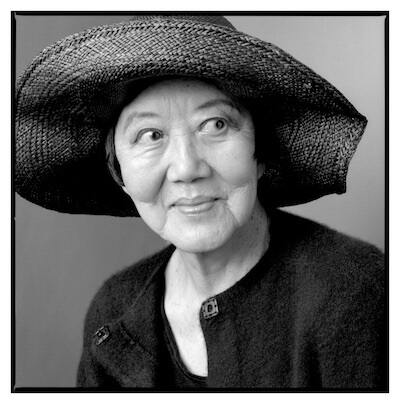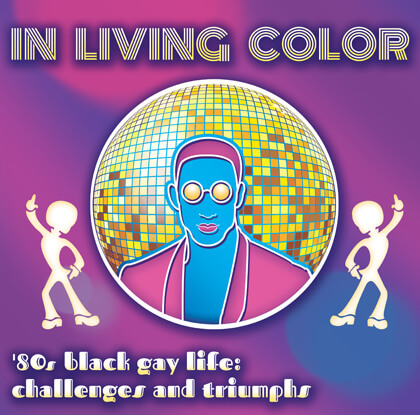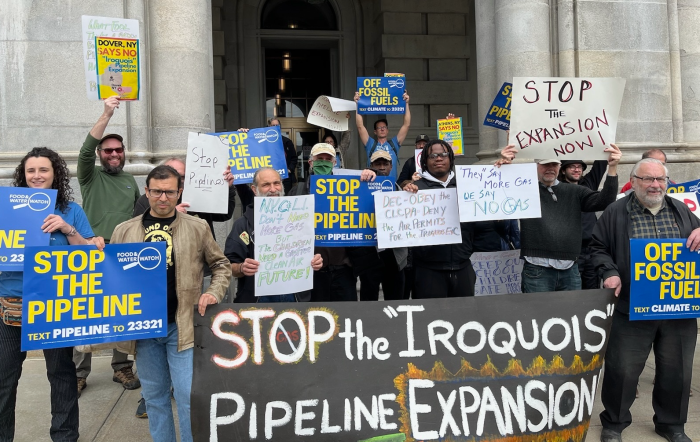Jacqueline B. Arnold in “An Evening with Phyllis Hyman,” created by Anthony Wayne and Kendrell Bowman. | PHYLLISHYMANSHOW.COM
She was quite literally a goddess of song. Amazonian, too, standing six feet tall with a luscious face that bespoke the beauties in canvases by Gauguin and Burne-Jones. And when she opened that succulent mouth, waves of dulcet, soulful resonance enveloped you like the warmest, most sensual aural caress, with, intriguingly, something slightly bruised about it.
She was Phyllis Hyman, sparkling Tony nominee for the Duke Ellington musical “Sophisticated Ladies,” and best-selling recording artist of songs largely dealing with the romantic heartbreak and loneliness she knew all too well. Her life was marked by dazzling highs and the darkest, most hopeless lows, until she ended it, herself, at 45, in 1995, in her New York apartment just hours before a scheduled concert appearance at the Apollo Theater. Her suicide note read, in part: “I’m tired. I’m tired. Those of you that I love know who you are. May God bless you.”
She was truly unforgettable, but not nearly well-known enough today, and to address this comes the quite terrific show “An Evening with Phyllis Hyman,” playing through the weekend at the Actor’s Temple (339 W. 47th St., Feb. 4, 8 p.m., Feb. 5, 2 & 7 p.m.; phyllishymanshow.com). Devoted Hyman fan that I am, I was delighted to discover that the two guys behind this project, Kendrell Bowman and Anthony Wayne, are the same ones who brought us the wonderful Sylvester musical, “Mighty Real,” a few years ago.
A fabulous celebration of the very special Phyllis Hyman
Jacqueline B. Arnold portrays Hyman, and, after catching this absolutely terrific show on January 29, I can safely say that a true star has stepped into the shoes of the departed one. Arnold is an absolute phenomenon, ferociously capturing the late diva’s huge, suffering heart, authentic wit, deep personal style, and above all, beautiful, beautiful low-slung voice, with just enough Hymanistic shading and colors in it to make it far better than any mere imitation. Last weekend’s shows sold out in a flash, so act today.
I met with Arnold, Bowman, and Wayne on a miserable Manhattan winter’s day, with icy wind mixed with rain lashing about, but talk about this very special singer did much to warm us all up.
“This is the first time the world will see something we’ve been creating for three years,” the deeply passionate Bowman confided. “I remember Phyllis being on BET’s ‘Video Soul,’ always with the big hats and shoulder pads, and we are happy to bring her music back because people still sample it today. But we’re bringing her life story behind the music, as well, and much more. It’s also about depression and, when you think about it, a lot of stars don’t live past 35 or 40 because of midlife crises. Her mental illness was hereditary in her family, something our community doesn’t really talk about. Anthony and I created a great evening of her songs and fun but also take you on a journey of real life that each audience member can identify with. People love her music but this is about exposing facts, making different choices.”
Arnold explained, “ Especially in ethnic – particularly in the black – community, we don’t talk about this, because black women are not allowed to show any kind of weakness. If you have some sort of depression or feel sad, you are supposed to suck it up and deal with it or deal with it quietly instead of asking for help. It’s not something that is a through-line in a lot of cultures and I think Phyllis dealt heavily with that along with being a public figure. When you are a public figure, like her, you may be singing this very haunting and love-stricken sort of music, but you’re still meant to come out with a happy ending, and that also goes back to American movies. We are always wrapping it up with a pretty bow, but life isn’t necessarily that way and she didn’t necessarily believe that. She had a firm, staunch feeling about her life being hers and she could do whatever she wanted with it. I’m sure you know she understood – and to some degree supported – Dr. Kevorkian and that theory of it is your life.
“She definitely understood the idea of someone choosing all the aspects of their life, where a lot of us tend to wait and see what happens or tough it up, whatever the case. Unfortunately, we all know someone who suffers from depression and bipolar disorder in our lives.”
Hyman was a Cancer, with the hyper-sensitivity, wit, and creativity associated with that sign, and, along with so many of us, unsuccessfully chased Hollywood’s all-white dream of romantic happiness.
“In the 1950s, in ‘Far from Heaven,’” Arnold said, “Julianne Moore’s character is severely depressed and medicates her condition with drugs, some sort of amphetamine to stay perked up. There’s the scene of her making a cake and how proud she is of her ability to get that done and how proud she wants to be of herself, because that menial task is difficult for her. That’s a very. very white American sort of way to be, which is we don’t show that in Asian, black, or Hispanic culture. We don’t do it, either. We go to church and keep it moving.
“She wasn’t the smallest woman in the world. When you are six feet and one-half inches, that half inch matters. You don’t wear heels and that was why she always performed barefoot, she didn’t need to be any taller. That’s when shoulder pads became a thing for her. They helped her to stand a little bit taller, especially as she started to gain weight. She didn’t have to be embarrassed about that, because they created a different sort of silhouette that was acceptable. I’m not short and when you are a tall woman, dating is always an issue. On top of being tall, you got something to say and you’re firm about it. Because of what men are taught to be, nobody really wants that.”
I asked Arnold what her favorite Hyman song was and she replied, “My favorite song to sing is – and this is going to surprise these guys here – ‘Meet Me on the Moon.’ And to listen to, I’m still a big fan of ‘What You Won’t Do for Love,’ I love her rendition. And I will always, always love ‘You Know How to Love Me,’ because that’s what you do. You get up and get a little groove going on.”
That song, which Arnold searingly performed in such a way as to have the entire audience in full, rockingly ecstatic groove mode the night I saw her, holds such meaning for anyone who loved Hyman. Legendary deejay Larry Levan used to turn it out at the Paradise Garage, making for unforgettable evenings, and it was always a romantic secret weapon of mine when pitching the woo to a new love. I’d play it and, inevitably, no matter what their background, delight would instantly fill them as they’d ask, ‘What’s that song?!’”
Arnold, a serious vocalist, observed, “She didn’t do many up-tempo dance records, apart from that and ‘Don’t Want to Change the World,’ her only number one single, on which she even rapped. I’m slightly older than both of my producers, but I’ve always sang and been attracted to deeper toned voices, so her and Anita Baker were what I listened to, and also that round tone. As I got older, I learned as a singer to bend the note, so that it fits your vocal abilities. Growing up in the house with my mom, that’s what we listened to, and I found out that Nancy Wilson was Phyllis’ favorite. When I got heavy into jazz in my later high school, early college days, she was everything, along with Dinah Washington.
“I like lyrically driven music, not note driven, and really enjoy hearing poetry set to a melody. I’m from LA and got into the UCLA music theater program, but put it on hold because I moved here to do a show called ‘Bright Lights Big City’ at New York Theatre Workshop. I’ve actually been working ever since, so I never finished college. After my first show I went on the second national tour of ‘Rent.’
“‘Bright Lights’ was adapted into a musical by Michael Greif, on the coattails of ‘Rent,’ with music by Paul Scott Goodman. Sometimes they do a concert version of it, very interesting but it was very hard to follow because it is very cinematic as the Jay McInerney book was. It has a long way to go.”
Wayne, whose embodiment of the legendary disco star Sylvester was as thrilling as Arnold’s Hyman, weighed in, “My birthday is the same as Phyllis’. I remember when she passed away: they played all her music that night. I bought her boxed set and really got into her. She is one of my favorite sounds and her tone is amazing, like Nancy Wilson. Since then, I have always been a fan. Then Terrell came to her, and said, ‘I really love Phyllis and want to do something with her story.’ Jackie was doing ‘Priscilla, Queen of the Desert,’ and when she came down from the ceiling, I thought, ‘Wow, look at her eyes, her expressions!’ It’s exciting to see it come to life.”
As with the Sylvester project, the producers sent their script to Hyman’s family, who gave them the thumbs up, with a cousin even sending some rare footage to them.
Bowman said, “We do things with class and integrity, not only trying to entertain but also addressing social issues to educate. With Sylvester it was about HIV/ AIDS and trying to erase the stigma of that, and this time mental health and depression.”
Among other talented black females who died tragically too early, I brought up the intense, vibrant Sharon Redd, who had a couple of dance hits (the sizzling “Can You Handle It,” “In the Name of Love”), was a lesbian, and succumbed to AIDS in 1992 at age 46. The guys didn’t know from her, but Arnold said, “I only know her because she was a Harlette [Bette Midler’s backup singer], as was I, during Bette’s London tour a couple of years ago. She was sort of a famous Harlette, and when you become one you gotta learn what’s what. They used to call me ‘The Thin Harlette,’ and I was the one that calms Miss Midler, her voice of reason. You fall into those categories which have been in place since she started them. Sharon was the feisty one, from what I understand.
“It was fun, Bette was great and treated us all good, all those things were on point. Watching her, I was made to realize, on a monetary level, what your name means when a company puts all that faith in you. That’s a lot of pressure and you have to deliver. There is no excuse for her not knowing how every single mechanism of her giant machine turns. She’s been working very hard for months on ‘Hello, Dolly!’ and she’s going to be wonderful. I see her, from time to time, but it’s not like I call her, ‘Hey girl! What’s up?’ [Laughs.]”
When I asked Arnold to name a personal career highlight, she answered “This is a massive highlight. I have been a principal in musicals before, but I never headlined a show of my own. I grew up singing in bands and was a studio singer when I was younger, so I know what that is. But this is a big deal: ‘An Evening with Phyllis Newman’ is like an evening with Jacqueline B. Arnold. You are coming to see me be somebody, and I really have to be that person. I really have to embody her. I refuse not to and I cannot wait.”
Hearing these words, Bowman started to tear up a little, and he apologized, “You know, I don’t cry, and it’s not easy for me to talk now. I’m an Aquarius, always thinking, and I don’t get much sleep. I am always thinking about numbers, lighting, etc. We both produced this show, but I am also directing it. You work with people who are loyal, and I thought of Jackie a long time ago in San Francisco for ‘Mighty Real’’s first tour. I gave her this book about Phyllis, and just believed in her talent, as I did Anthony as Sylvester. I’ll be honest: I went to theater school, as well, but these people are real actors, and nobody gives a shit about them in these Broadway shows. They’re used in a machine: you gonna put this black boy here in the back and this black-skinned girl over there. And guess what? You have a full cast with everybody else, but there are still not enough minorities on the stage.
“I wrote a book, ‘How to Produce a Show From Your Couch,” available on Amazon and at Barnes & Noble. Anthony and Jackie are in it, and I made a lot of mistakes and share all of that. ‘Mighty Real’ is going to Broadway, probably in the fall. We have a big Hollywood writer rewriting some of the script, and also a new set and production. And we’ve started looking at a tour for ‘Phyllis.’ There’s a lot of interest there, as she had a major following in Japan, and all throughout Europe she was massive.
“I’m proud of our productions, with such diversity not just onstage but off, as well: makeup artists, stage managers. That’s the joy I have out of creating a show for bringing people who are very talented together. I’ll be honest, our core demographic doesn’t go to Broadway shows. But people who come to Sylvester are music lovers and music is the universal language which brings together all sorts of audiences from all age brackets. But you have to be smart about the stories you put out. Honestly, there are some black shows I won’t go see, there has to be something that people are willing to see instead of just doing something to make a quick dollar. When you’re rich, you can do that.
“But I’m not rich and gotta make mine count, or you won’t see no more productions. You say me and Anthony are like the new Ziegfelds [smiles], but I’m not gonna sacrifice not shopping, eating out, not going to brunch – basically give up being gay – for something I don’t care about.”
































